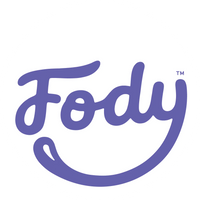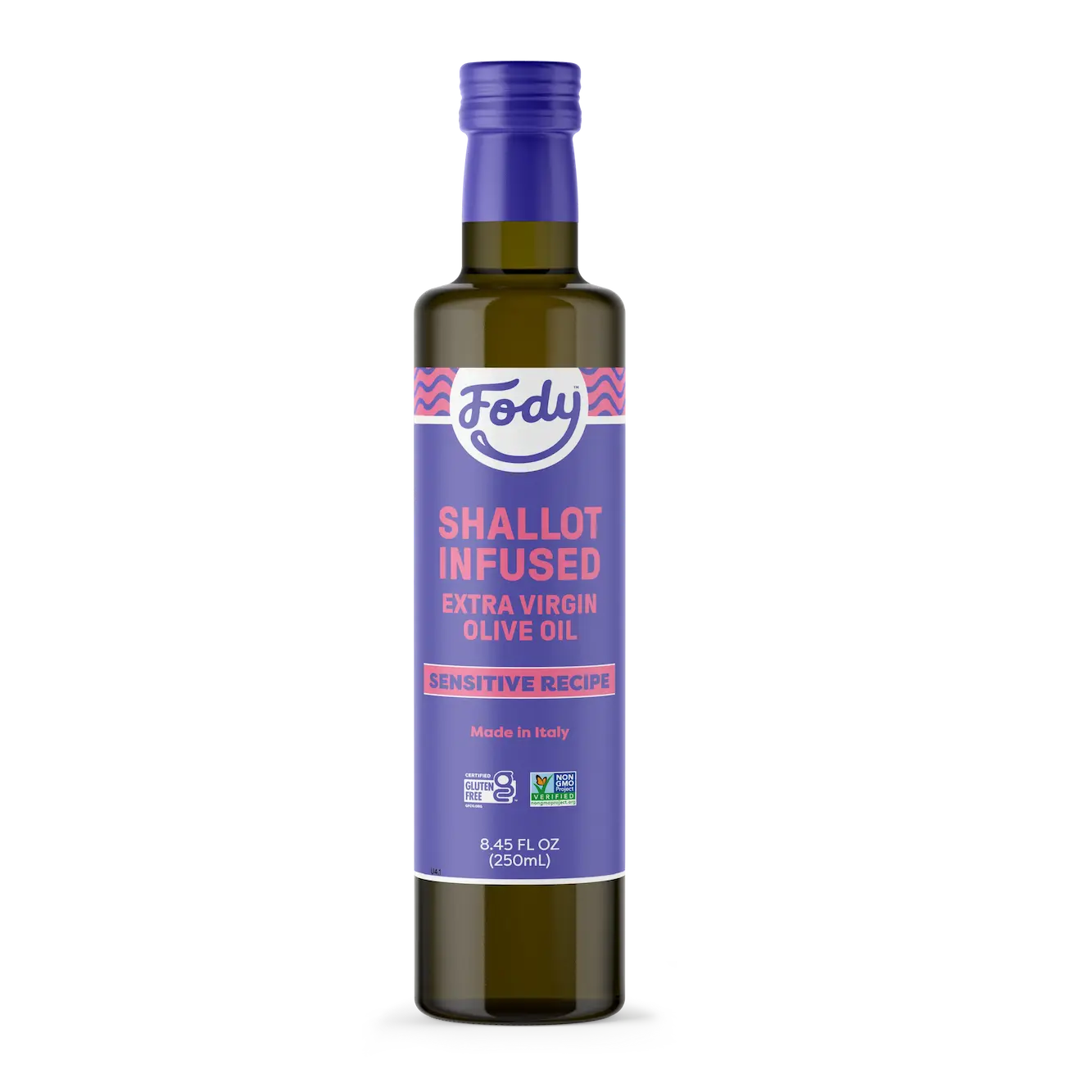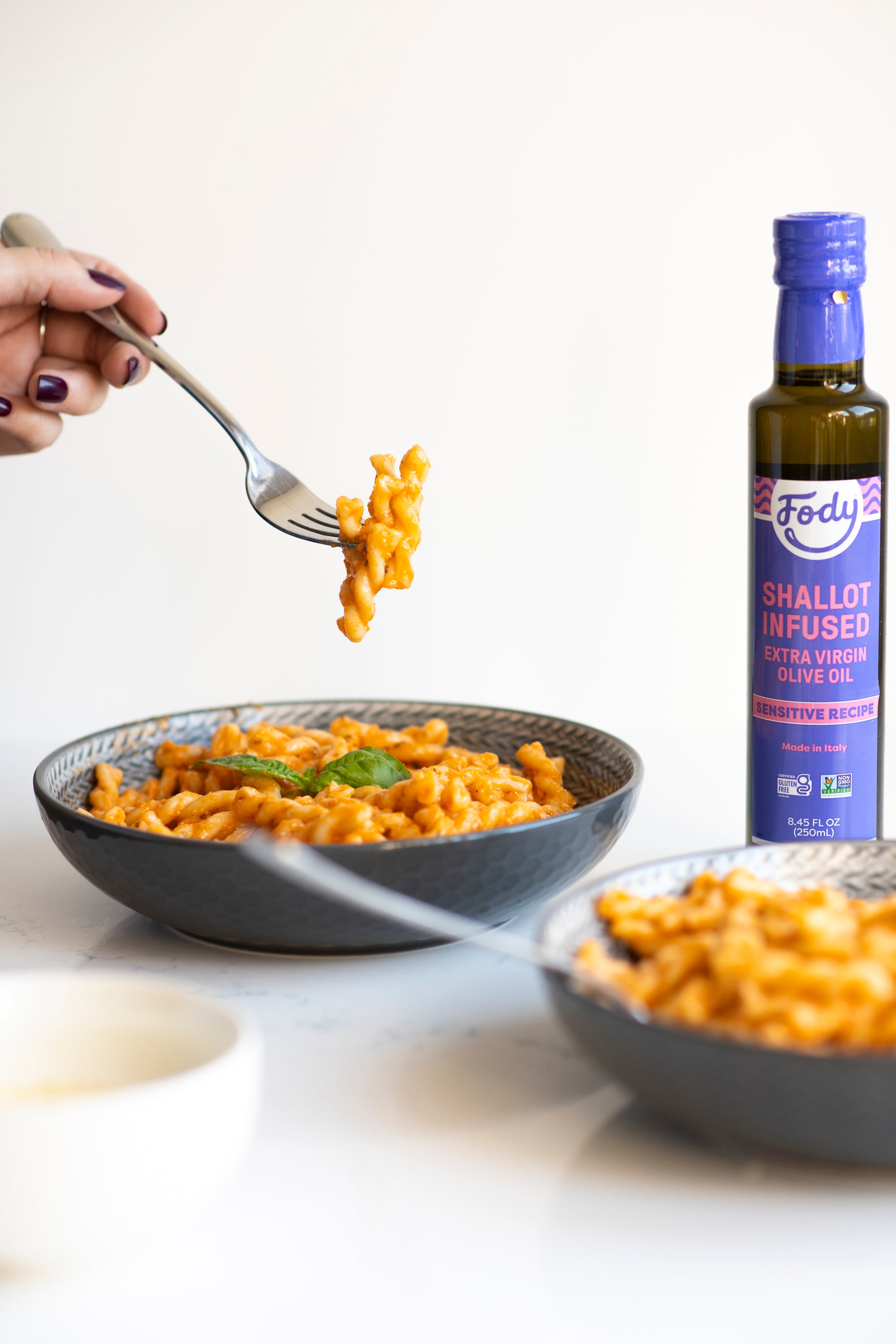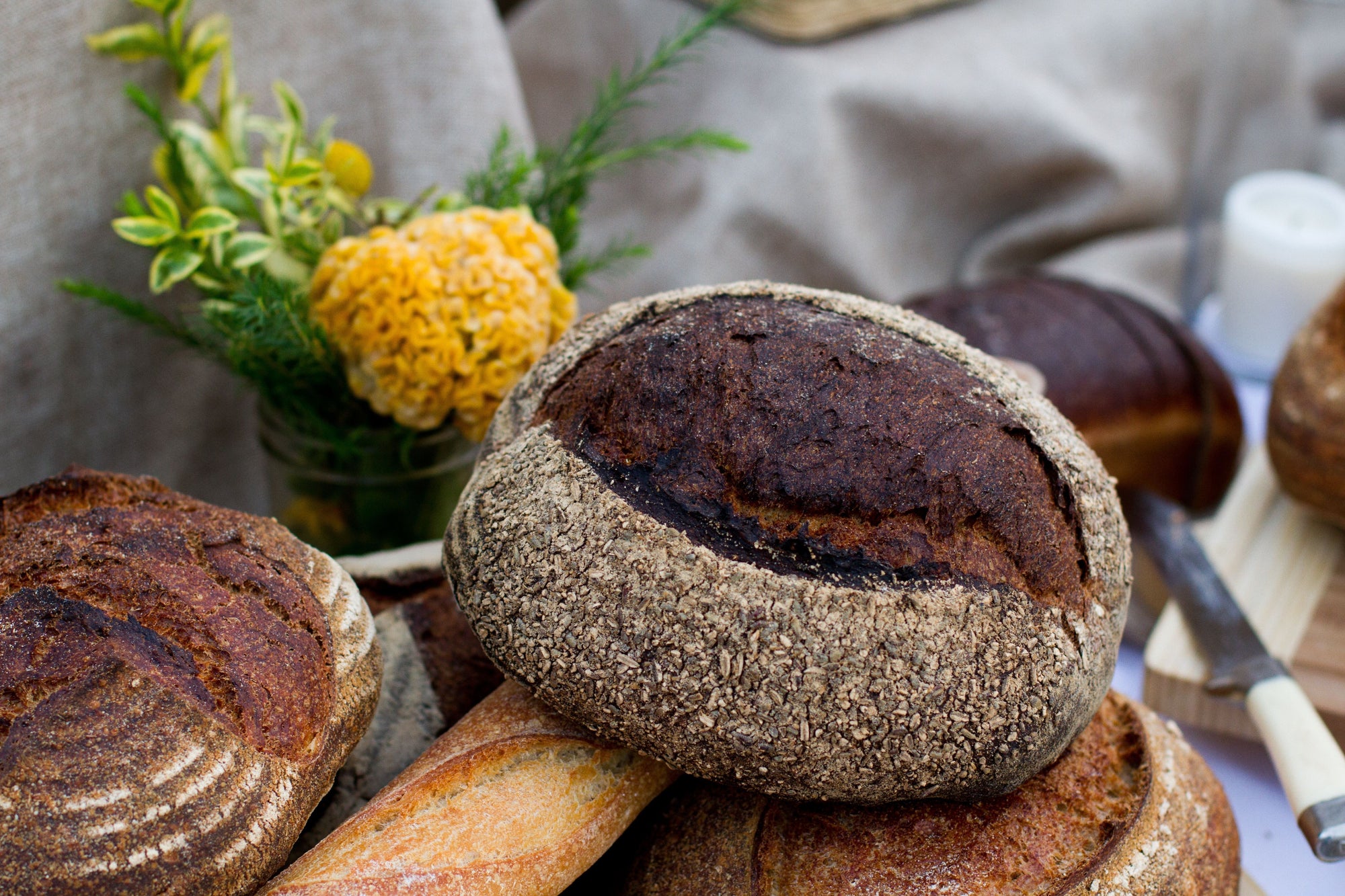

Gluten & The Low FODMAP Diet
Okay let’s get this out right up front - the Low FODMAP diet is NOT a gluten-free diet. That said, you probably have noticed that there are many gluten-free suggestions especially while on the initial Elimination Phase of the diet, so we understand the confusion.
Remember that FODMAPs are carbohydrates, while gluten is a protein. Wheat contains both gluten and fructans, which are a FODMAP. See the problem?
Let’s Talk Wheat
Wheat, along with barley and rye all contain gluten and FODMAPs but wheat is certainly the grain that we focus on the most and for good reason. It is what most sandwich bread is made from, most pizzas, pasta, and bakery items ranging from Danish and croissants, to bagels, English muffins, cookies, brownies and cakes. Wheat is in many of the things we love. At least until our guts start yelling back.
Steering Clear of Fructans
The reason why these wheat-based items are largely off-limits during the Elimination phase is not because of the gluten but because of the fructans in the wheat. Fructans, in addition to GOS (galacto-oligosaccharides), are part of the “O” part of the acronym FODMAP, also referred to collectively as “oligosaccharides” by Monash University in their Smartphone App and literature. (Fructans are in onions and garlic, too, by the way).
The Elimination phase is intended to calm your digestive system by eliminating foods that are high in FODMAPs, hence limiting your wheat intake at this point makes sense. Simply put, many wheat free and gluten-free products are naturally lower in FODMAPs.
Testing, Testing
Then, during a well-structured Challenge phase, you would try eating traditional gluten-containing wheat breads, starting with small amounts at first. You might also try traditionally slow risen sourdough bread that contains wheat but fewer FODMAPs. How is that possible?
The microbes (good ones) in the active sourdough culture (sometimes called a starter) actually consume fructans in the wheat during the fermentation period making the resulting sourdough bread more tolerable for many. By testing both kinds of wheat bread (conventional and slow-rise sourdough) you would be able to assess whether you are reactive to gluten, the fructans in wheat or both - or neither!
Of course any thorough gastroenterologist or dietitian would have you tested and cleared for celiac disease before even embarking on the Elimination phase or these bread Challenges. It could also be that you have non-celiac gluten sensitivity (NCGS), which is typically diagnosed after both celiac disease and a wheat allergy have been ruled out.
In that case you are not truly allergic to wheat, but NCGS can create digestive upset, brain fog, even depression and joint pain. If you are cleared for celiac disease and NCGS, your dietitian may recommend that you try slow-rise sourdough bread first, for the reasons explained above. Work with your dietitian on amounts and timing.
A structured Challenge phase can be, well, very challenging and best undertaken with professional help. But in the end you will have gathered very valuable information about your own digestive system and reactions to the gluten as well as the fructans in wheat, and this information can guide you in recipe and meal choices.
Please note: We have mentioned celiac disease as well as NCGS in this article. It is not unusual for people to have IBS as well as other, concurrent digestive issues. These can be the ones aforementioned and/or gastroesophageal reflux disease (GERD), small intestinal bacterial overgrowth (SIBO) or other diagnoses. We always advise that you consult a gastroenterologist before embarking on any dietary change.
It is important to be screened for celiac disease and NCGS and to have a formal IBS diagnosis before starting the Low FODMAP diet and to be aware of any other digestive issues. The Low FODMAP diet might be able to help with symptoms of some of these other issues but always follow your doctor and dietitian’s recommendations and do not self-diagnose.
So, what are you waiting for?
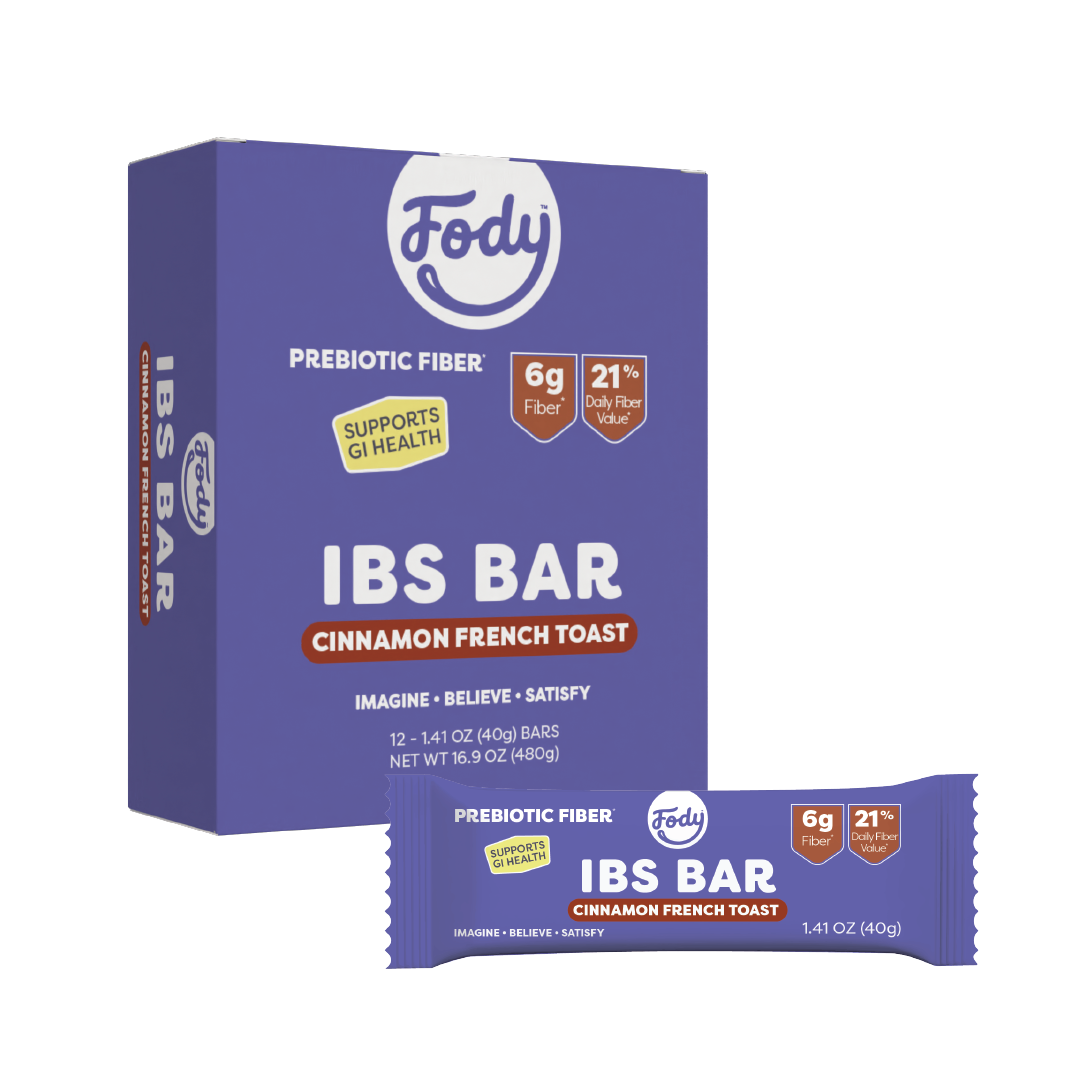
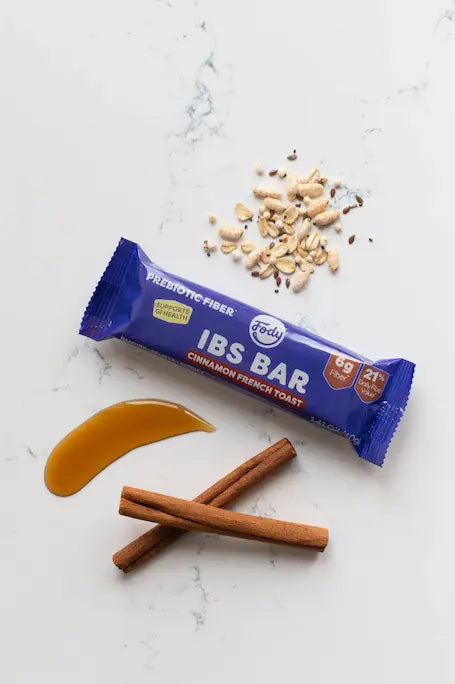 Cinnamon French Toast High Fiber Snack Bar - 12 Pack
Cinnamon French Toast High Fiber Snack Bar - 12 PackCinnamon French Toast High Fiber Snack Bar - 12 Pack
$32.99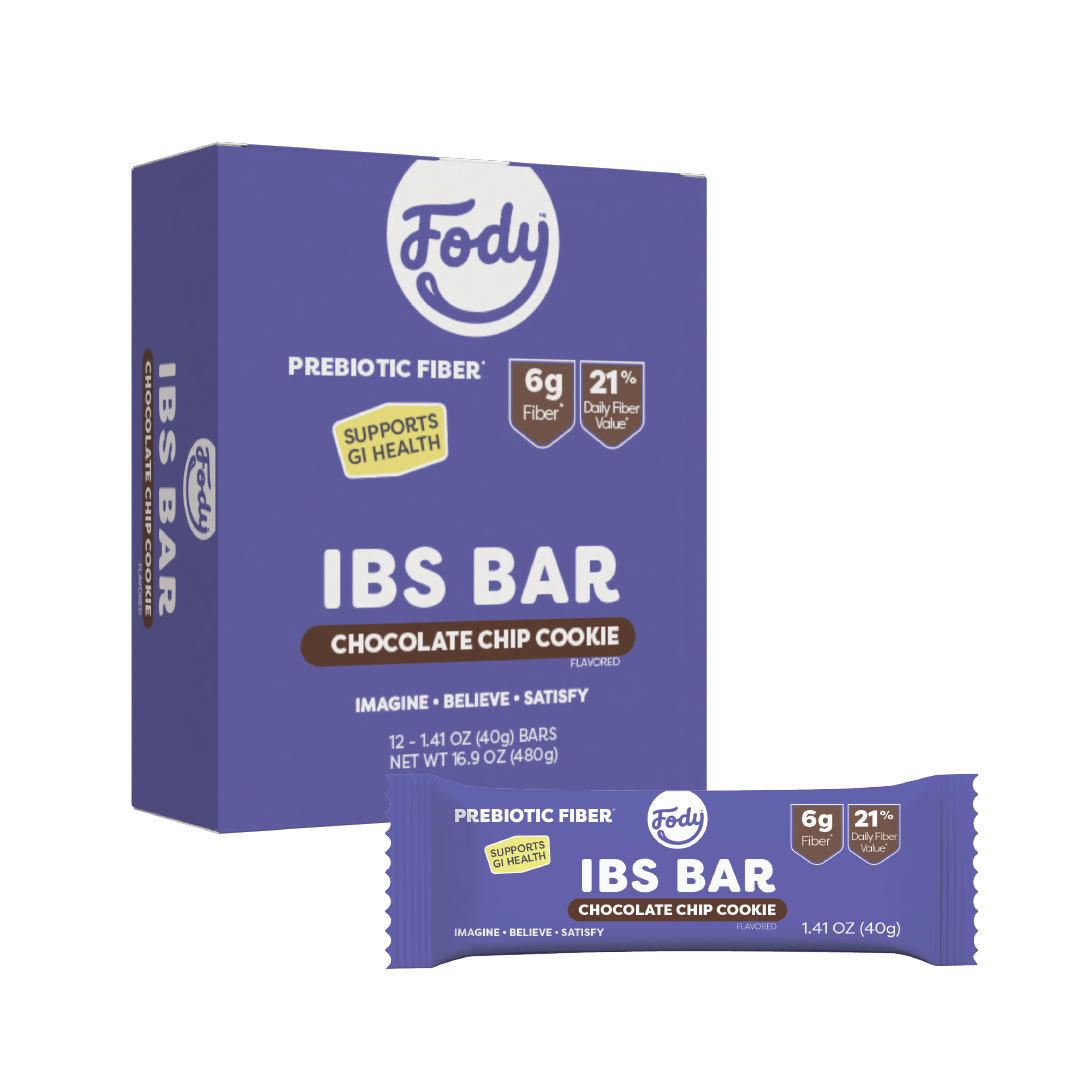
 Chocolate Chip Cookie High Fiber Snack Bar - 12 Pack
Chocolate Chip Cookie High Fiber Snack Bar - 12 PackChocolate Chip Cookie High Fiber Snack Bar - 12 Pack
$32.99
